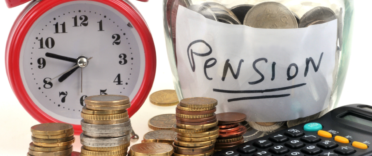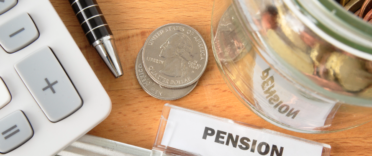 Today’s Readers’ Surgery covers income tax codes, state pension entitlements, housing benefit and inheritance tax (IHT).
Today’s Readers’ Surgery covers income tax codes, state pension entitlements, housing benefit and inheritance tax (IHT).
Reader Question 1:
I am on state pension only and receive housing benefit, if I took a part time job how much can I earn before losing my benefits?
My Answer:
Well the answer depends on your personal and financial circumstances, for example whether you live alone or with someone who should be contributing towards the rent. It also depends on your age and the type of income you have (or plan to have). So I can't give you a definitive answer here.
But the good news is that the government have produced an online tool which will answer the question for you. The tool is called the Benefits Adviser.
All you need to do is run the tool and tweak your circumstances each time and you will see the impact on your benefits.
-----------------------------------------------------------------------------------------------
Reader Question 2:
Is money bequeathed to charities exempt from inheritance tax?
My Response:
Yes it is. 100% inheritance tax free (IHT). So are bequeaths to political parties (subject to a couple of flimsy criteria) – funny that!
-----------------------------------------------------------------------------------------------
Reader Question 3:
My partner retires in September 2011 (date of birth 08/12/50). What pension will she receive and will it be more than £97 week?
My response:
Again the answer is that it depends.
A lot of people may assume that they will automatically receive the full State Pension (which is currently £102.15 per week for the 2011-12 tax year) but this is not necessarily the case. In fact some people will get less than the full entitlement while others may get more. This is because the amount of State Pension you will receive at retirement depends on how many qualifying years of National Insurance Contributions (NICs) you have built up. If for example your wife has not been able to pay NICs at some point in the past her State Pension entitlement may be reduced as a result. Consequently I do not know how much pension she will be entitled to as it depends on her personal NI record.
However, there is a way to find out – by obtaining a State Pension forecast. A state pension forecast will give your wife detailed information on what she might receive when she reaches State Retirement age. The forecast will estimate both her basic State Pension as well as any additional State Pension (S2P).
For further details read my article Money tip #109 – Get a State Pension forecast (and why)
-----------------------------------------------------------------------------------------------
Reader Question 4:
I have an army pension that paid me £637 per month, that has recently dropped to £536 per month and my tax code has changed from 647L to 747L. With which system am I better off? I earn between 20 and 30k per year.
I'm assuming the £637 is before tax and the £536 is after the tax has been deducted so tax has recently started to be deducted from my pension therefore my tax code has gone up to reflect this. I'm just not sure which way is best either to carry on paying tax on my pension and not taxed as much on wages or taxed more on wages and get all of my pension. It may be that it works out the same both ways? I'm not sure.
My Answer:
The first thing to clear up is your tax code. If you want to understand tax codes and how to check them then read my article Money tip #4 – Check your tax code
The reason for the change is that the annual personal allowance (the amount of income you can earn before you pay tax) increased this tax year from the £6,475 in 2010 to £7,475.
So 'your tax code going up' as you put it would actually mean that you should receive more of your pension tax free. There seems to be some confusion over the exact pension you receive both gross and after tax. But the upshot is that your combined income (your pension and other income) mean that you are a basic rate tax payer.
What you may have seen is re-jig of your tax codes for each income source. To quote HMRC 'you should get a tax code for each job or company pension. This tells each employer or pension provider how many tax allowances you get. But your Personal Allowance - and therefore your tax-free pay - will normally only apply to your main job or pension. If you pay tax at basic rate (20 per cent) you'll be given a 'BR code' for your second job or pension - this means that you pay basic rate tax on all your income from this employer or pension provider.
The upshot of all of this is that you should in theory be better off this year – assuming no change in your gross income - than you were last tax year as your personal allowance has increased (i.e. you are paying less income tax). But you need to make sure that you are paying the right amount of income tax overall. One way quick way of doing this is to use an online PAYE calculator to check that the net pay you are receiving across the board is correct. It’s very simple to use and in 10 seconds can give you peace of mind that you are either a) paying the correct amount of tax or b) need to look into the situation further by contacting your pension administrator.
I hope that helps
Best Wishes
Damien
The material in any email, the Money to the Masses website, associated pages / channels / accounts and any other correspondence are for general information only and do not constitute investment, tax, legal or other form of advice. You should not rely on this information to make (or refrain from making) any decisions. Always obtain independent, professional advice for your own particular situation. See full Terms & Conditions and Privacy Policy





Thank you very much for your help, it is well appreciated, and just what i wanted.